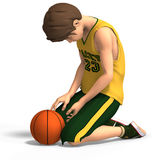Executive Functioning - for parents and children
/Executive Function: Parents and Children
By Patience Domowski, LCSW
What is “executive functioning”? It’s a fancy term used to describe certain skills that are usually lacking in a child’s performance, often in school. These skills are the basic skills used to function in everyday life like memory, (remembering homework assignments and the routine), organization (keeping things together and knowing where things are in their backpack, desk, or at home), figuring out how and when to get things done at home and school (planning projects for example), and self-control to regulate their emotional reactions (getting easily frustrated).
Kids with executive functioning impairments are often diagnosed with ADHD or sometimes other disorders as well, or may just struggling with executive functioning regardless of another disorder. If a person has ADHD they struggle with executive functioning, however a child or adult can struggle with executive functioning without having ADHD. Executive Functioning disorder or impairment is often diagnosed by a school psychologist. If your child has this skill deficit they will likely be given some accommodations and adjustments at school to help them learn these skills such as with a 504 or IEP.
If a parent is also struggling with their own executive functioning and is trying to help their child learn these skills, it can be extraordinarily harder than for a more organized parent. The parents should ask for help from the school as well as other friends and family members if needed to learn to put some strategies in place to keep themselves and the child on track. If necessary a behavioral therapist can help as well.
Some basic strategies for parents to use themselves, and then teach their child include:
Organization:
- Set up and label containers, shelves, etc to organize where items go in the house. Do the same with school work papers. Put old school papers in a basket or box to save, or throw them out. Put current school papers in folders in child’s backpack and label what goes where. Practice with child organizing their own papers, so child learns to do the skill too. Parents can use the same strategy with other important household and work papers using a filing system or even scanning and saving on the computer instead of on paper.
Memory and Planning:
- Use a paper calendar on the wall at home, and a travel calendar to take with you (unless you use your phone calendar). Have your child use an agenda for school assignments. Write down appointments, reminders, homework, bills due etc.
- Use sticky notes as reminders. Put them up around the house.
- Use a checklist for routines and chores at home.
- Write out a plan for each day including time frames to get the things done. (Example: 4pm homework, 5pm play outside, 6pm chores. Etc, or more specifically: 3:30- math homework, 3:45 reading, 4:00 writing essay, etc)
- Use timers/alarms to keep you and your child on track for getting things completed. Maybe even make a competition- who can get ready in the morning the quickest, or who can stay on task to finish a chore first.
Self-Control/Self-Regulation:
- Recognize when you are starting to get upset and frustrated, before it gets worse, stop and take a breath and figure out how to relax or solve the problem. Start teaching your child the same strategy by pointing it out to them (“I see you’re starting to get frustrated with math. How about we take a little break?”, or “Mom is sure getting upset over this recipe not working out. I think I’m going to just try a different thing to make for dinner, instead of getting upset.”)
- Play games to work on impulse control and feelings management like running through a routine at another time to see if can improve on your timing or efficiency, or role playing how to handle a frustrating situation that might come up (at a time when nothing bad is happening).
- Come up with strategies for handling problems for both parent and child (can be separate lists) and write them up and hang them in the home where you can see them and use them. You can remind each other to use a strategy.
If needing help with motivation to use any skill or strategy, add in a motivating reward! Such as if you finish your routine in time, without reminders, you get a little piece of candy, or if you calm down quickly you get to play a game on your device for a few minutes. You can make it a fun and friendly competition with your child on who can keep on task the longest, finish their work quicker, or use more coping skills in a week instead of getting upset. Your child will enjoy calling you out when you’re off which will be a good reminder for parents, but also you can help your child recognize and correct their own struggles in a fun way.
Remember to ask for help as needed and not expect yourself or your child to be perfect. These skills take a while to learn but are learn-able, you just need more external assistants like calendars and timers. You can do it- and so can your child!
References and Links:
https://developingchild.harvard.edu/science/key-concepts/executive-function/
Helpful info on how to get helps at school for your child on this website:
This tip sheet list also includes a free printable handout:
https://www.growinghandsonkids.com/executive-functioning-skills.html






















